“Jake, you are not going to do this to me! Everything is all planned out. We are going to Austin together come August. You are going to college. You are too smart to spend your life moving cows from one pen to another.” Andie shoved his long blonde hair away from his face. It was already hotter than hell outside and it was still, technically, spring. Frigging climate change. He yanked the ponytail holder off his wrist and started gathering his hair to get it off his neck.
“There is no point, Andie. I’m only a hand now, but once I get a couple of promotions, I’ll be making pretty good money. Enough for me to get us a place together and take care of you. I like working at the ranch. My Uncle Jim got me that job, and he worked on ranches his whole life. He took care of a family just fine on what he made. More than one family, because god knows my mom couldn’t have kept me in food, clothes, and shoes without his help.”
Andie sighed. “Jake, Uncle Jim was a great guy. I miss him and I know you miss him much more than me. And I know he worked on a ranch, but he started doing that in the sixties when the world was a totally different place. You could support a family with that kind of job back then, but that’d be a lot harder now. Wages haven’t kept pace with inflation. We went over this in class! Hell, Jake, they’re growing beef in labs. Who knows whether ranches will even be a thing in twenty or thirty years. Just because you’re strong enough to do that work, it doesn’t mean you’re gonna be satisfied doing that kind of work for the rest of your life!” He threw his hands up in frustration.
They had been going around and around about the topic of college for months, and Andie couldn’t understand what had changed. Jake had graduated the previous year and had declared to all and sundry, firmly, that he would be taking a gap year and working at the ranch to save up money until Andie graduated. Jim hadn’t loved the idea, and Andie’s feelings about it had been mixed, too, but Jake had been adamant. When Andie graduated, they’d go to UT together, and Jake would go with him or not at all. So, on the first of August, just before the start of Andie’s senior year, they’d both applied for Priority Admission at the University of Texas in Austin, Texas’s flagship public university.
They’d both been accepted. Andie, who had transcripts and extracurriculars that would have gotten him serious consideration from any university in the country, had gotten a full ride. Jake, who’d had good, but not stellar, grades and a very respectable thirty on the ACT test rather than a perfect thirty-six like Andie’s, had gotten most, but not all, of his tuition covered. He’d qualified for federal grants and some subsidized loans to pay for the rest. They'd filled out their forms and accepted their spots. Everything had been set. Settled. Planned.
While they were busy with their summer jobs and college applications, Jake’s Uncle Jim had gone to have a funny-looking spot removed from his forehead at his wife’s insistence. Not for the first time. Life on a ranch entailed a whole lot of sun and not a whole lot of sunscreen. Jim had lost a few chunks of flesh over the years to the dermatologist. The biopsy showed that this one was indeed cancerous— a melanoma, even— but the dermatologist reported that the lesion had been small and they’d gotten clean margins. A close call. Jim was instructed to wear sunscreen, sleeves, and hats going forward, and to come in for thrice-yearly skin checks.
In the fall, though, Jim had come down with a cough he couldn’t shake. “Change of the season, everyone gets sick,” he’d said. Weight began to inexplicably drop from his normally stocky frame. “Needed to lose my beer gut anyway,” he’d said. He kept on doing what he always did, declining to go back to any more doctors to get poked and hacked at over a cough or feeling rundown. He was just getting older.
Then, Jim had a seizure one day at work. The ranch had called for an ambulance, and when Jim had gotten to the hospital, the ER doctors had ordered a CT scan. They found spots of cancer everywhere. Lungs, thus the cough. Brain, thus the seizures. Super-aggressive. Resistant to standard therapies. The doctors had gone over the options with Jim and Amy, and they weren’t good— more a matter of how he wanted to spend the brief time he had left than a matter of meaningfully extending that time. Jim went home on hospice care and lived another two months on high doses of steroids and serious pain control to give him as much good time as he could get. By December, he was too weak to do much, but he refused to ruin Christmas or New Year’s for his family. He gritted his teeth and held on. On the third of January, with his family by his side, Jim had slipped away. Jake had taken it hard. Very hard. Everyone had. Jim was the keystone of their family, and he was only forty-three years old.
Andie had stayed glued to Jake’s side during and after Jim’s illness because he’d understood what Jim meant to Jake. Jim and his wife Amy had been the only two reliable adults in Jake’s life. Jake's mother was a mess. Jake’s father had not been heard from since Jake was five years old, which was before Andie’s time. This was a relief to everyone. Andie didn’t know all the details; he wasn’t even sure Jake knew them, but Lou Rivera had apparently been a big Alpha with both alcohol and anger management problems, a dangerous combination. Bethany, Jake’s mother, and Jim’s sister, had regularly “walked into cabinet doors” and “tripped over the dog” during the years they were together. Jim had tried to convince his sister to get rid of him, but she, with her own substance abuse and mental health issues to manage, had refused.
Then, one day, Jake had turned up at Jim’s house with his left arm supporting his right and his whole forearm swollen and warm to the touch. Amy had loaded him right into the car and taken him for an x-ray. Diagnosis? A ‘green-stick’ fracture of his radius. Jake’s reluctance to tell anyone, even the doctors at the Urgent Care, how it had happened had instantly alerted his aunt to the seriousness of the situation. Like every other little rough-and-tumble kid on the planet, Jake had always enjoyed telling harrowing tales of how his knee had gotten scraped or his ankle had gotten twisted. Now, he had the most serious injury of his young life, and he wouldn’t say a word about the circumstances. When Amy brought Jake back to her house--where he would be staying for as long as she could keep him there-- he was wearing a small camouflage-patterned cast he’d picked out for himself. She’d waited for Jim to get home from work, and then she’d taken him aside and had a swift word.
Jim had grabbed his hat and the keys to his F-150 and left the house. He’d come home with a split lip, a black eye, torn-up knuckles, and a couple of cracked ribs, but his mission had been accomplished. Lou Rivera had been given his marching orders, big Alpha or not, and Jim had made it clear that if he showed up again, the best he could hope for was a visit from the cops. That was if Jim was feeling law-abiding.
Jake’s mother, however, was not filled with gratitude for her brother’s intervention. So Jim had taken a hard line with Beth, too. Watching his sister get kicked around by some unemployed, lowlife drunk of an Alpha had been hard enough to take, he told her, but no one and Jim meant no one, was going to hurt that little boy again. If Jim saw or heard of Lou coming within a twenty-mile radius of Jake, Jim would have her in that courtroom for a custody hearing so fast her head would spin. Since Jake’s presence in Bethany’s life facilitated the collection of checks from the government and, purely theoretically, could lead to child support checks from his now-absent father, too, Bethany had a vested interest in keeping Jake in her home, at least on paper. In the end, Jim’s second ultimatum had proved unnecessary. As far as anyone knew, Lou Rivera had moved first to New Mexico, where he had some family to leech off of, and from there to parts unknown. He had never attempted to contact Bethany or his son again, a situation that Bethany never stopped blaming Jim and, with titanic unfairness, Jake for.
At his tender age, Jake had now seen two radically different models of masculine strength, and Jim knew that if Jake, an Alpha like his father, was going to turn out alright, he was going to need a lot more guidance than he was getting at home. After that, Jim made sure Jake stayed at his house as often as possible— most weekends and sometimes during the week, too, most of every summer, and whenever his mother disappeared or was doing a court-appointed stint in rehab or jail. It wasn’t an official arrangement. Jim had an innate distrust of lawyers, courts, and government intervention in private lives. Besides, he didn’t need a judge to tell him what the right thing to do was— Jake was his blood, and he’d watch out for him just fine without any government checks or oversight, thank you.
It was Jim who taught Jake how to be strong and how to be gentle. How he had to strike a balance between those two things if he wanted to get a steer to move from one pen to another without too much trouble, saddle a restless horse, or deal with a toddler having a tantrum. It was Jim who taught Jake his manners. Jim was a good church-going man, and, in his opinion, a good man made sure all the bills got paid. A good man did not get drunk or curse in front of ladies or Omegas or old folks. A good man did not allow anyone else to curse in front of ladies or Omegas or old folks, either, and did not fail to open doors or carry burdens for them. A good man offered chaste compliments to make people smile and feel appreciated. A good man helped with the cooking, and when he didn’t, he thanked his wife when she handed him a plate and always told her how good the food was, even when it was a little singed. A good man sat on the floor and played with his kids for a few minutes when he got home from work, no matter how tired he was. He coached tee-ball and took everyone to the Easter Egg Hunt every year and out on the lake for the Fourth of July. He shouldered his burdens without complaint and took care of his family. Jim considered Jake to be one of his own, and Jake considered Jim to be a larger-than-life paragon.
Jim had never merely seen Jake as an obligation, however. He had loved Jake like a son. The last time Andie had seen Jim, on New Year’s Eve, he had taken Andie’s hand in his withered one and looked him in the eye. “You take care of Jake,” he’d rasped, his ravaged lungs struggling to keep him oxygenated despite the cannula in his nose, his eyes unfocused from the morphine. “He’ll need you. He’s hard-headed, but he always comes around in the end. He’s been through a lot, and he deserves all the love you can give him. I’m not gonna ask you to promise because I already know you’ll always be there for him.”


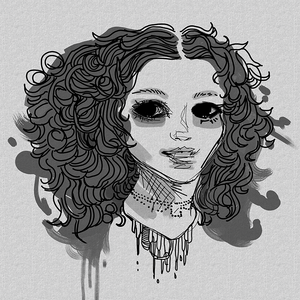
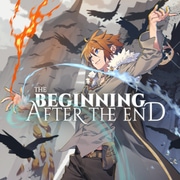


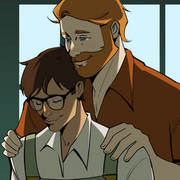
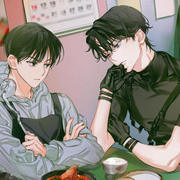
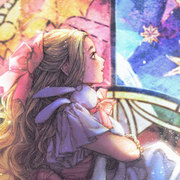

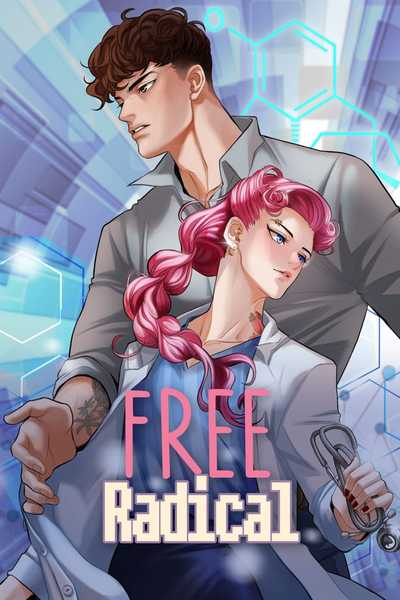
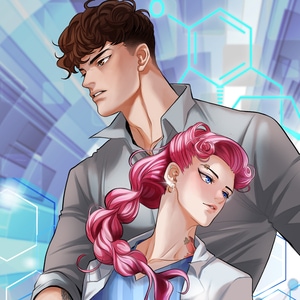
Comments (15)
See all